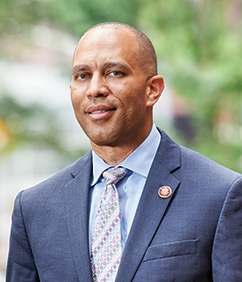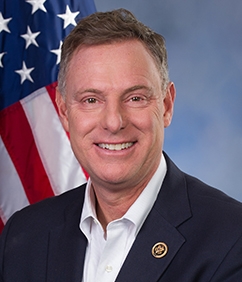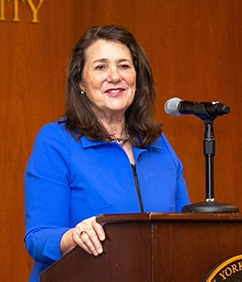Members of Congress discuss economic and public health concerns raised by COVID-19
On May 1, in an NYU Law streamed event, US Representatives Diana DeGette ’82 (CO-1), Scott Peters ’84 (CA-52), Hakeem Jeffries ’97 (NY-8), and US Senator Jacky Rosen (Nevada) explored the economic and public health issues raised by COVID-19, and the ways that the legislative branch can protect Americans in the midst of the ongoing pandemic. The discussion, presented by the Office of Alumni Relations, was moderated by Dean Trevor Morrison.
“The extraordinary nature of this pandemic has required an extraordinary response,” said Jeffries, who praised the bipartisan support that enabled Congress to pass the $2 trillion Coronavirus Aid, Relief, and Economic Security (CARES) Act, an economic stimulus package aimed at mitigating some of the most devastating economic losses experienced by individuals and businesses in the COVIS-19 crisis.
“We want to be able to help the broadest number of people and do it in a thorough and compassionate way,” Jeffries said. Rosen noted that the implementation of this unprecedentedly large stimulus bill will require oversight and transparency to make sure that funds are appropriately reaching the most economically vulnerable Americans.
The panelists agreed that the ultimate economic repercussions of the pandemic are unknown. “We don’t know what it’s going to look like economically in July,” said Peters, who said he is advocating for what he called “automatic triggers” that would disperse funds from the federal government without requiring additional Congressional approval. Certain dips in employment or other measures could release funding into paycheck protection programs, unemployment insurance, or direct funding to Americans so they don’t have to live under crippling economic uncertainty, he said.
DeGette, who chairs the Congressional Oversight and Investigations Subcommittee of Energy and Commerce, which has jurisdiction over healthcare-related issues, noted that the federal government has loosened antitrust regulations to allow for greater collaboration among medical corporations, research labs, and other entities in developing a vaccine. However, more needs to be done, she added. “We are going to have to figure out how to develop testing and tracing,” DeGette said. Rosen suggested that one solution might be a national organized effort, similar to AmeriCorps, to help administer tests.
The real question for representatives in all levels of government from local to federal, Rosen said, was: “How do we protect lives and livelihoods?”
Posted May 14, 2020




